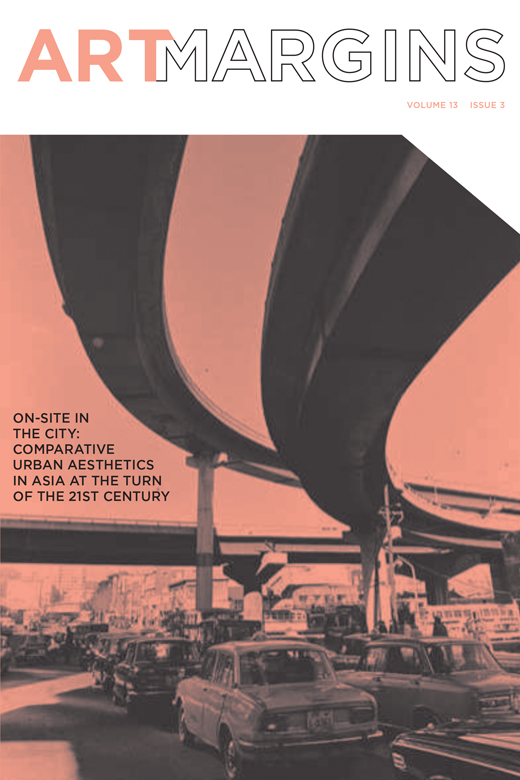Budapest Farmer’s Hack: How to Integrate Digital Monitoring Systems in Community Gardens
Budapest Farmer’s Hack is a project developed in 2013 by Attila Nemes and Péter Eszes for OS Kantine, a media lab that focuses on open systems, open knowledge and the effort to build sustainable, community based models, while supporting other groups engaged in the same work. The trial project included the reclaiming of unused community gardens where plant needs, water, light, and nutrients were monitored by sensors that fed information into a digital network, which made the labor spent on taking care of the garden more productive. The text below is adapted from a conversation with Attila Nemes.
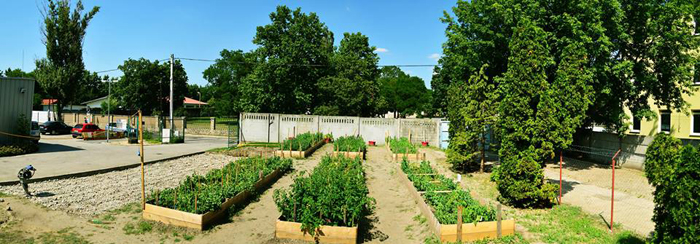
Through Budapest Farmer’s Hack, which took place throughout greater Budapest in the spring and summer of 2013, participants planted and cared for unused gardens while receiving environmental data and feedback about the progress of the crops. Using open-source technology, garden sensors connected to the Internet provided 24-hour data concerning the humidity, temperature and the amount of light in the garden. Alerts were triggered if the humidity or the temperature was too low or too high. With additional data provided by the participants, including the yield of the crop and the amount of labor used, the garden has a recorded history and data visualization that can provide useful information for the success of future gardens.
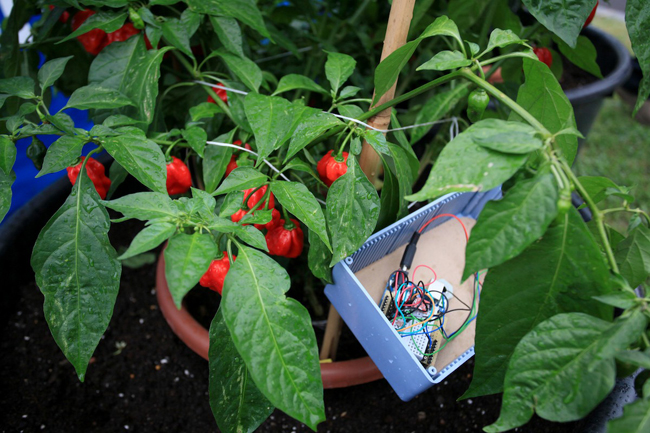
Project participants included students from Budapest University of Technology and Economics, located an hour by public transportation from the garden. Having the garden data transmitted to the students via the sensors and fed into the Internet saved time and energy as they were able to monitor the garden’s needs from afar. At the start of Budapest Farmer’s Hack the gardeners were interested in the technological aspects of the project, but in the end the caring of the garden itself became their focus.
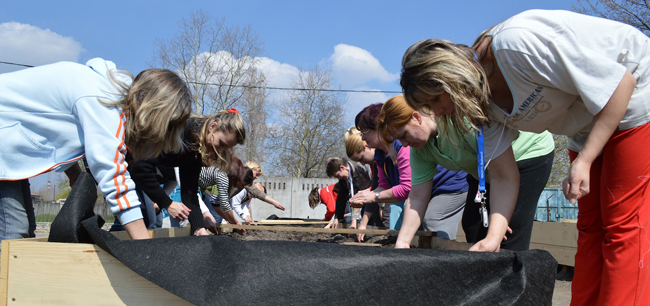 As in many large urban areas throughout the world, people living in Budapest often lack access, time, or the energy to connect with nature. Budapest Farmer’s Hack was designed to help address these needs. The project creates a space where tasks are shared in a fast and productive manner, preventing common garden hazards such as overwatering. The collection and distribution of information using inexpensive DIY technology that is readily available to the public helped to build a system that conserves on everything from travel time to and from the garden to the amount of energy used to grow the plants. Educating the public about the benefits of integrating technology and nature – how these low-tech systems can have an effective impact on the productivity of small community gardens is one of the objectives of the project.
As in many large urban areas throughout the world, people living in Budapest often lack access, time, or the energy to connect with nature. Budapest Farmer’s Hack was designed to help address these needs. The project creates a space where tasks are shared in a fast and productive manner, preventing common garden hazards such as overwatering. The collection and distribution of information using inexpensive DIY technology that is readily available to the public helped to build a system that conserves on everything from travel time to and from the garden to the amount of energy used to grow the plants. Educating the public about the benefits of integrating technology and nature – how these low-tech systems can have an effective impact on the productivity of small community gardens is one of the objectives of the project.
Budapest Farmer’s Hack aims to be a model for cities around the world. With the idea that if similar data networks were added to the urban infrastructure (alongside gas, electricity, water), gardening has the potential to become a part of everyday city living. Adding environmental, economic and cultural value to urban environments throughout the world. See: http://budapestfarmershack.fictionlab.hu/pestiborso/.

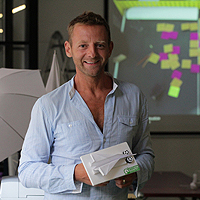 Attila Nemes is an independent curator living in Budapest. He has been part of the funding team and is a program advisor at the arts and technology lab Kitchen Budapest. He is currently starting a new lab (www.fictionlab.hu). He has studied at the University of California, Berkeley, and is doing his PhD at the Institute for Art Theory and Media Studies (ELTE), Budapest. He is a lecturer at several universities.
Attila Nemes is an independent curator living in Budapest. He has been part of the funding team and is a program advisor at the arts and technology lab Kitchen Budapest. He is currently starting a new lab (www.fictionlab.hu). He has studied at the University of California, Berkeley, and is doing his PhD at the Institute for Art Theory and Media Studies (ELTE), Budapest. He is a lecturer at several universities. Hungarian designer Péter Eszes focuses on interaction design between man and machine. His knowledge of technology, code, information architecture, user behavior and graphic design helps him to oversee the whole process from ideation to production. He likes to make sure that everything works before it becomes beautiful. Currently a designer at IXDS, Péter has worked at several different companies, including
Hungarian designer Péter Eszes focuses on interaction design between man and machine. His knowledge of technology, code, information architecture, user behavior and graphic design helps him to oversee the whole process from ideation to production. He likes to make sure that everything works before it becomes beautiful. Currently a designer at IXDS, Péter has worked at several different companies, including 